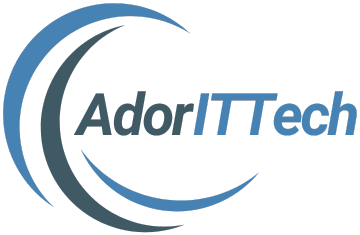Beginning with simple projects is the best approach to start your coding. Simple projects enable you to implement basic programming principles in a real-world manner. Rather than merely learning theory, you gain experience in solving actual problems. Simple projects assist beginners in gaining confidence and learning how various programming languages function. Simple projects also make learning more interactive and enjoyable.
While finishing simple projects, you enhance the problem-solving process and logical capabilities. These kinds of projects become stepping stones toward larger applications down the road. They also end up being pieces in your portfolio that demonstrate to future employers or clients what you can do. Working on projects provides you with a better feel for programming logic and how things in a program interact. If you’re starting out with programming, beginning a simple project is an excellent step to take!
Why Beginners Ought to Begin with Simple Projects
Most starters have the habit of diving headlong into complex projects. It can be disheartening and daunting. Basic projects enable you to begin with small projects and improve incrementally. They teach you basic programming principles without unwarranted complication. Working on simple projects helps you learn logic in coding, resolve errors, and improve in writing neat code. Such projects provide a sense of satisfaction, and you want to continue learning.
By working on small projects first, you can make it a habit to solve things in a logical way. They also show you the value of dividing big projects into smaller parts. Rather than being overwhelmed in a large project, you are taught how to work on little pieces and add them up little by little. When you build up your confidence, you can progress to advanced applications and frameworks. Soon you will be able to create intricate applications with no difficulty.
Advantages of Working on Basic Projects
Understanding Basic Coding Concepts
Small projects expose you to key programming concepts in a useful manner. You have the opportunity to exercise variables, loops, conditionals, functions, and data structures. These are core constructs of any programming language and enable you to think logically. When you implement these concepts within a real project, you grasp them better than when you learn them from tutorials.
By doing small projects, you also become comfortable debugging errors and patching bugs in your code. This is a valuable skill for any programmer. The more projects you create, the more patterns you see in coding logic, and hence you are able to grasp more advanced programming ideas more easily. Learning through practice is always the best way, and small projects offer the best platform to do this.
Increasing Confidence in Programming
Most new students are frustrated when they have difficulty with code. Finishing a project, however trivial, makes you confident in programming. It shows you can write working code and debug. The sense of satisfaction you receive for finishing a project encourages you to continue learning.
With each successful project, you’ll find yourself more inclined to work on larger challenges. As time goes by, you’ll find that you become increasingly comfortable testing out new technologies and complex ideas. With each successful project, you’ll gain increasing confidence in your ability to realize ideas into functioning applications. Confidence is crucial when it comes to programming, and small projects provide you with it.
Creating a Portfolio for Future Prospects
A portfolio of your projects will make a big impact while applying for jobs or freelance contracts. Employers like people with practical experience over theoretical knowledge. Even little projects can show your skill in writing clean, efficient, and working code.
A documented portfolio demonstrates your problem-solving capabilities and creativity. It indicates that you have coding experience, as opposed to a novice who might not have coding experience. The more projects you do on a regular basis, the more your habit of coding in a structured and maintainable way develops. This is the key skill to have as a professional developer.
Basic Project Ideas for Newbies
Web Development Projects
1. Personal Portfolio Website
A personal portfolio site is an ideal method of representing your skills and projects. It is your internet resume where you can present your experience and contacts. This exercise teaches you how to use HTML, CSS, and JavaScript when developing a prestigious web presence. Creating a portfolio site provides a chance to enhance your skills for designing and structuring web pages in an optimal manner.
- Has pages such as About Me, Projects, Contact
- Can be formatted with CSS or frameworks such as Bootstrap
- Assists in learning responsive web design
- Enhances front-end web development comprehension
- Can be added with interactive components later
This project shows you how to organize a website and effectively apply styling methods. You can afterwards implement animations, a blog page, or even a contact page with backend integration. Having your portfolio built, you can present it to potential employers or clients so that you will have an increased rate of getting hired or freelance work.
2. To-Do List App
A to-do list application is an easy but handy project that enables users to keep track of their daily activities. It entails inserting, updating, and removing tasks, and therefore it is a suitable project for JavaScript beginners. This project will assist you in exercising user input handling and data storage using local storage, and thus it is an excellent learning experience.
- It is possible to add tasks by a click
- Tasks can be set as completed or pending
- Data can be cached in local storage for persistence
- Offers practice in DOM manipulation
- Can be prioritized with priority labels and reminders
This is a wonderful project to learn user input handling and data storage. You can also extend it with a calendar system or a reminder system. If you add some more sophisticated features such as due dates and colored categories, this basic project becomes a complete productivity application.
3. Basic Blog Site
A simple blog website allows you to create, update, and post blog posts. This project teaches CRUD (Create, Read, Update, Delete) operations, which is a core requirement of full-stack development. This project shows you how to handle user-generated content and render it dynamically on a site.
- They can add and remove blog posts
- Blog data can be kept in a database or JSON file
- Responsive design for improved user experience
- Can be easily integrated with Firebase for database management
- Assists in content management system learning
You can include additional features such as user authentication and comments. The project is a wonderful way to start with backend technologies. To advance it further, you can introduce a content management system (CMS) which can enable the user to upload pictures, group posts, and plan future blog posts.
Python Programming Projects
1. Basic Calculator
A simple calculator is one of the simplest projects to begin with in Python. It accepts user input for numbers and performs arithmetic operations. It makes beginners familiar with working with mathematical functions in Python.
- Handles addition, subtraction, multiplication, and division
- Is able to perform multiple calculations simultaneously
- Handles errors for invalid inputs
- Can be ported to a GUI app with Tkinter
- Aids learning input/output handling in Python
This project can be extended by incorporating more advanced mathematical functions such as square roots, exponentiation, and trigonometric operations. If you create a graphical interface, you can make it resemble a real calculator with input button.
2. Weather App using API
A weather application retrieves live weather information from an API such as OpenWeatherMap. It gives users the current temperature and weather. This project teaches the idea of dealing with third-party APIs in Python.
- Utilizes API calls to retrieve real-time weather information
- Shows temperature, humidity, and weather forecast
- Enables users to scan the forecast for several locations
- Introduces work with JSON data
- Can be combined with a graphical interface to provide improved user experience
This project instructs you on how to use APIs, a useful skill for numerous real-world uses. You can also implement features such as a weather history tracker, extreme weather notifications, or the ability to show weather data in alternative units.
Conclusion
Begin with simple projects and it will be the best way to enhance your coding skills. They make you feel confident and provide hands-on practice with actual applications. No matter if you are learning web development, Python, JavaScript, or mobile apps, these simple projects will lay a solid foundation. Choose a project, begin coding, and enjoy the learning process!
FAQ’s
1. What are some easy project ideas for complete beginners?
If you’re beginning, some excellent easy project ideas are a personal portfolio website, a to-do list application, a simple calculator, and a random joke generator. These projects enable you to exercise basic coding principles while creating something functional.
2. How do I select the most suitable project for my skill level?
Select a project that is commensurate with your current level of knowledge but slightly challenging. If you are an absolute beginner, begin with a simple calculator or a static web site. Progress to interactive apps and database-backed projects as you gain confidence.
3. What are the most suitable programming languages for simple projects?
For web development, HTML, CSS, and JavaScript are excellent choices. If you are inclined towards backend programming, Python is easy to learn. For mobile app development, Flutter (Dart) and React Native (JavaScript) are the best choices.
4. Can I use these easy projects in my portfolio?
Definitely! Small projects already display your skill to write clean and working code. You can list them on your GitHub page or personal website and show them off to prospective employers or clients.
5. How much time is needed to finish a straightforward project?
Time will depend on how complex the project is and on your level of experience. Something simple such as a digital clock or calculator can be done in a few hours, but a more complex project such as a to-do list app or blog website can take days.


